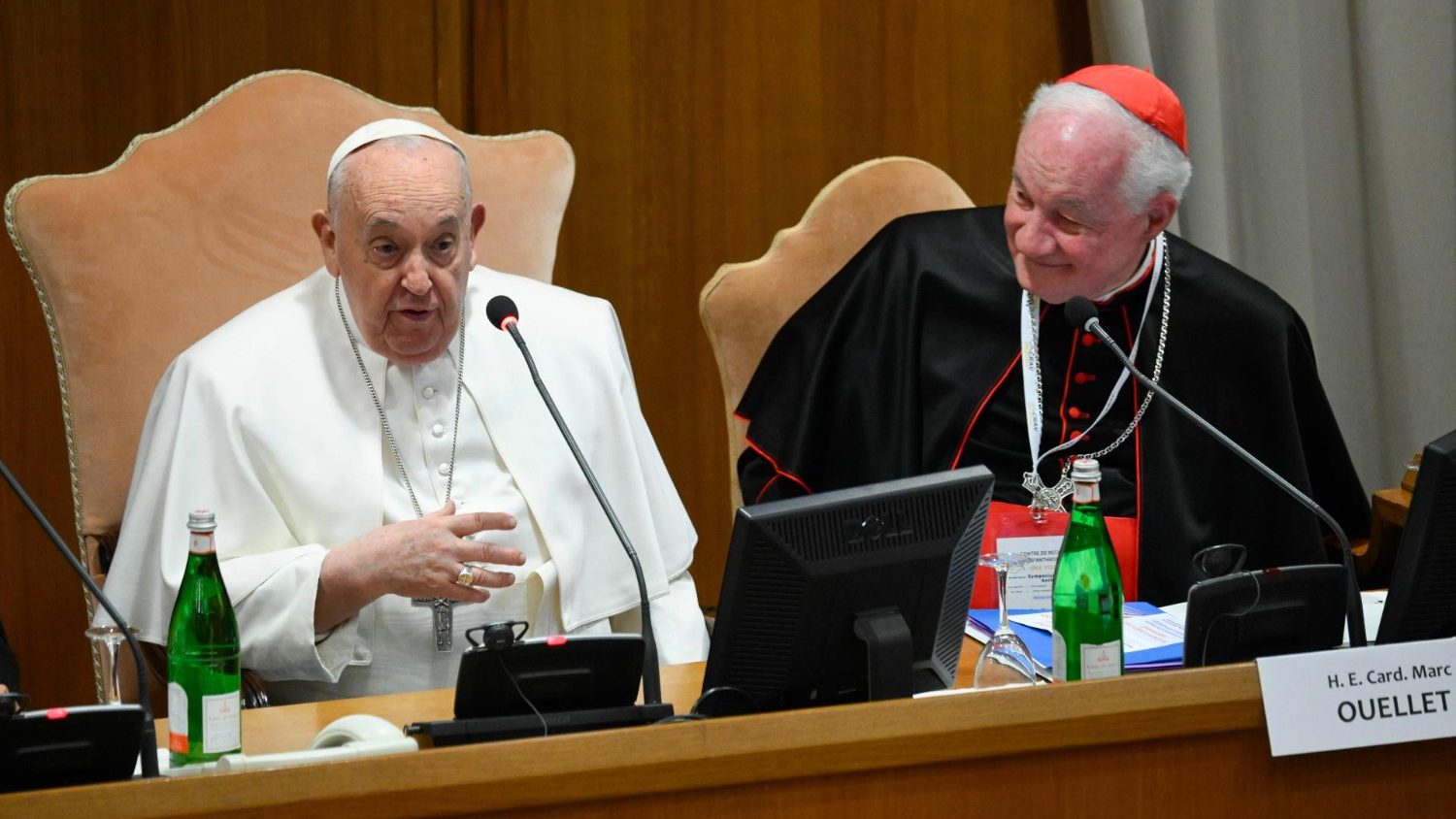Addressing participants in the international Symposium "Man-Woman: Image of God.” Pope Francis describes so-called gender ideology as the "ugliest danger" of our time, because it cancels out all differences that make humanity.
Pope Francis on Friday again spoke out against gender theory describing it as an “ugly ideology of our time”, because it erases all distinctions between men and women. To ceancel this difference “is to erase humanity. Man and woman, instead, exist in a fruitful ‘tension’”, he said.
The Symposium
The remarks came as he opened his address to participants in the international Symposium "Man-Woman: Image of God. Towards an Anthropology of Vocations" held in the Vatican on March 1-2.
The Congress is organized by Cardinal Marc Ouellet, Prefect Emeritus of the Dicastery for Bishops, together with the Centre for Research and Anthropology of Vocations (CRAV) and is a follow-up to the previous 2022 Symposium dedicated to the theology of the priesthood.
Introducing his address the Pope said he still has a cold and asked his assistant Monsignor Filippo Ciampanelli to read it out for him, "so I don't get so fatigued.”
In the prepared text the Pope reflected on the theme of the Congress which is aimed first of all at highlighting the anthropological dimension of every vocation.
The human person is a vocation
Indeed, he remarked, “the life of the human being is a vocation” which has a relational character: “I exist and live in relation to who generated me, to the reality that transcends me, to others and to the world around me, in which I am called to embrace a specific and personal mission with joy and responsibility.”
“Each one of us discovers and expresses oneself as called, as a person who realizes oneself in listening and response, sharing our being and gifts with others for the common good.”
This fundamental anthropological truth is sometimes overlooked in today's cultural context, where human beings tend to be reduced to their mere material and primary needs. Yet, Pope Francis said , they are more than this: created by God in His own image, man and woman “carry within themselves a desire for eternity and happiness that God himself has planted in their hearts and that they are called to fulfil through a specific vocation.”
“Our being in the world is not a mere fruit of chance, but we are part of a design of love and are invited to go out of ourselves and realize it, for ourselves and for others,” the Pope said.
“We are called to happiness, to the fullness of life, to something great to which God has destined us.”
We all have a mission in Church and society
Recalling Cardinal Saint John Henry Newman’s “Meditations and Prayers” Pope Francis further remarked that not only we have all been entrusted with a mission, but ”each and every one of us is a mission.”
The Pope therefore welcomed the symposium and the studies conducted on this topic because, he said, “they spread awareness of the vocation to which every human being is called by God”, and are also useful to reflect on today’s challenges, on the ongoing anthropological crisis, and on the need to promote human and Christian vocations.
Promoting a more effective "circularity" of vocations
He also emphasized the importance of promoting “a more effective circularity” of the different types of vocations in the Church, including lay vocations, ordained ministry and consecrated life, so they “can contribute to generating hope in a world overwhelmed by death.”
“Generating this hope, placing oneself at the service of the Kingdom of God to build an open and fraternal world is a mission entrusted to every woman and man of our time,” he said.
The courage to seek God’s will
Closing his address, Pope Francis encouraged the participants in the Symposium not to shy away from risks in seeking God’s will in their work, reminding them a living faith is not an artifact in a museum:”The Holy Spirit asks us fidelity, but fidelity moves, and often leads us to take risks”, he said.
“Move forward with the courage to discern and risk seeking God's will.”


"Emergent properties" are just patterns in the physical world that were recognized and categorized as a distinct qualitative change by a conscious mind. The "emergence" really only happens in your mind because the patterns you observe feel qualitatively different from what appeared before so I don't see how you can explain the mind itself with this concept alone. This happens to people arguing for physicalism a lot, they try to explain consciousness with more consciousness while completely missing the point of the discussion.
Even if you could you're still pretty far off, mainstream science has only the promise of being able to do this.
Which rules tho? If you just say "well there's definitely some rules somewhere but I don't know them" you have a belief system, not a scientific theory.
I'm not asking "why is there a universe" tho, I'm asking "how does your metaphysic of choice make sense?" and I'm not getting a straight answer.
That's another hole in physicalism IMO, if consciousness completely supervenes on the physical and thus has no direct causal efficacy on the physical world why would evolution select for it? It doesn't really make sense for consciousness to have evolved under physicalist premises since it by definition isn't necessary for things to keep happening as they do in the physical world.